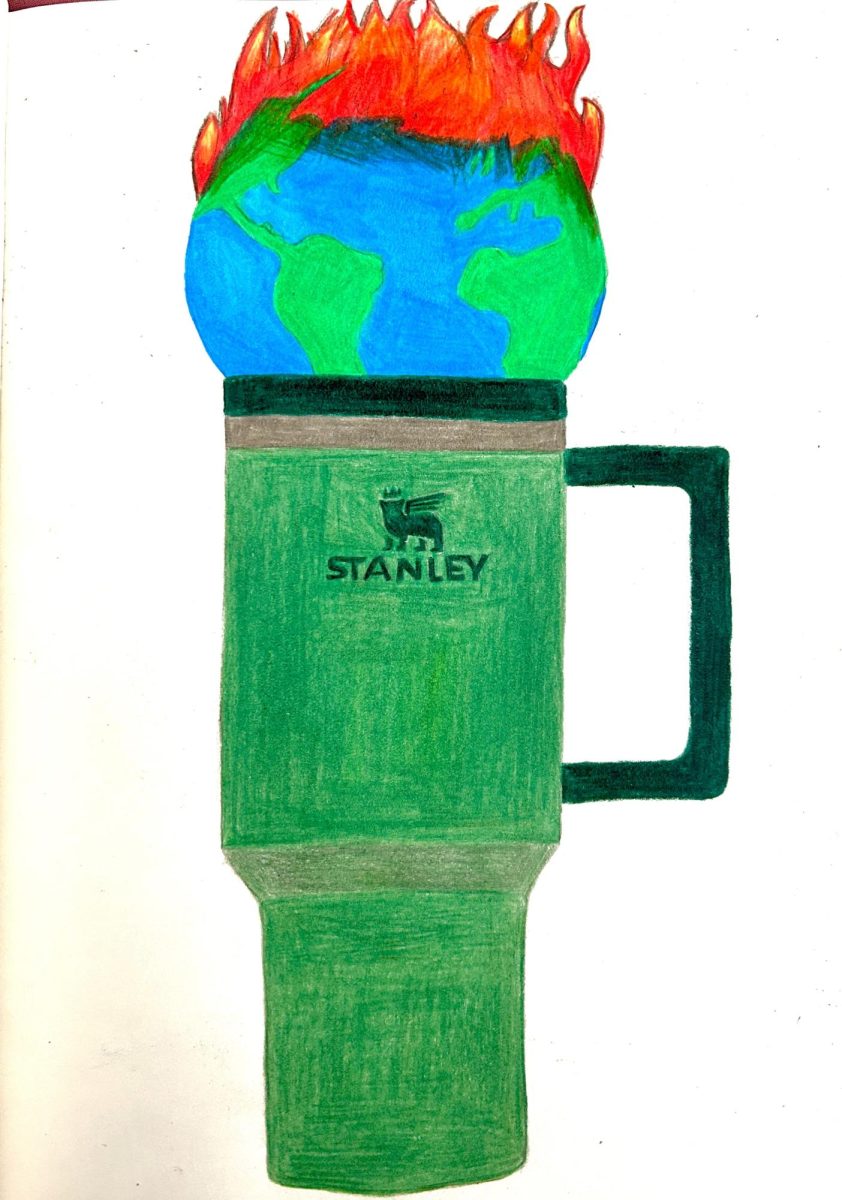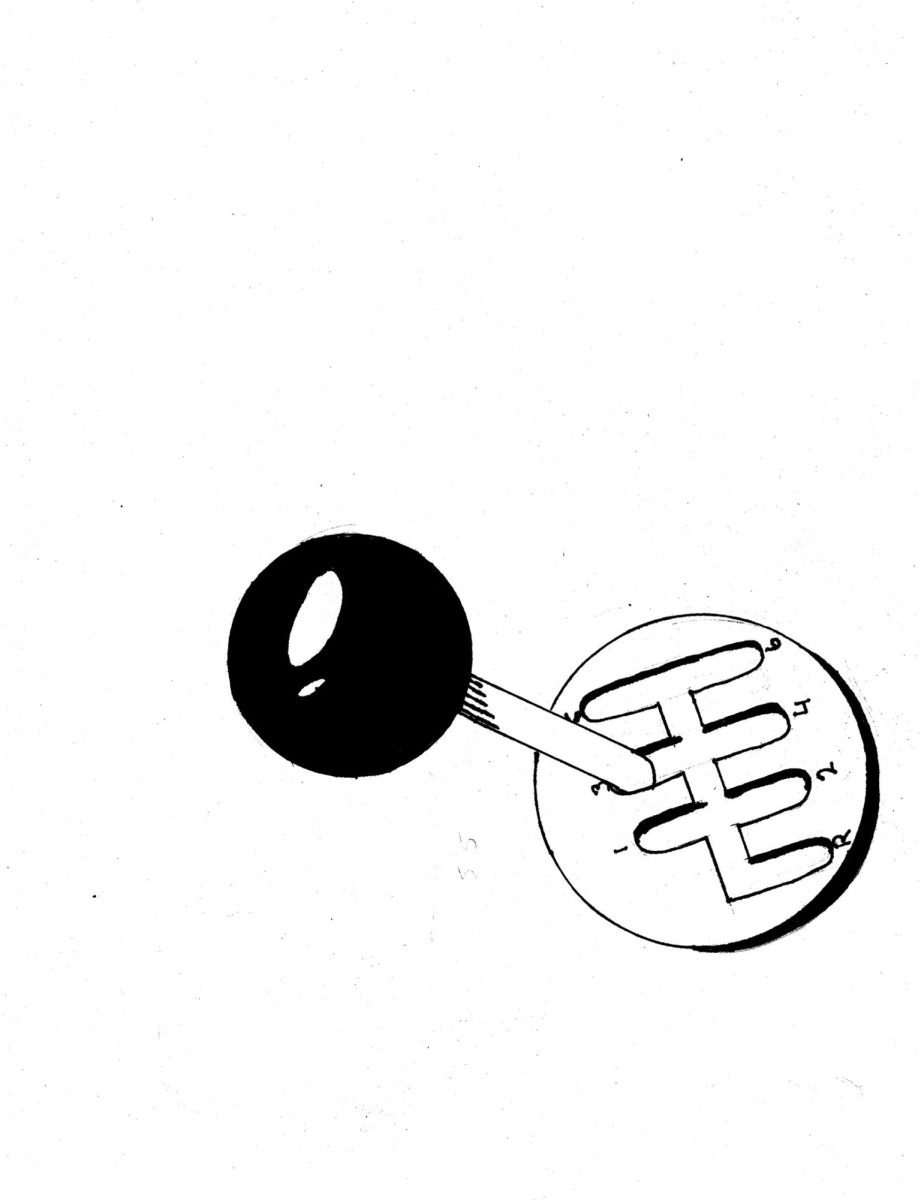Early in the morning of Jan. 3, eager shoppers lined up, hoping to secure the “luxury” of purchasing one thing. This $50 pink tumbler, a limited edition collaboration between Stanley and Starbucks, was exclusively available at Target. As the day progressed, videos surfaced online depicting a chaotic scene as shoppers vied for the coveted item. What was once a sought-after cup became a humiliating showcase of consumerism.
Product release frenzies are nothing new; they are evidence of an obsession with consumption and abundance that has been growing since the Industrial Revolution. The rise of social media and influencer marketing has compounded this phenomenon as brands pervade online spaces. Social media targets individuals using algorithms that cultivate a personally appealing feed, convincing users that a product they see online is a true must-have, already owned and loved by everyone they see online.
Earlier in Nov. 2023 a TikTok video by user “@danimarielettering” went viral depicting a Stanley tumbler that survived in the wreckage of her burned car. This video which gained 32 million views launched the brand into the public consciousness showing the power of influencers.Social media users often develop parasocial relationships — relationships that a person imagines having with another person whom they do not know, which starts interfering with real-life mental well-being — with influencers, subconsciously trusting their advice and recommendations. This dynamic is quite lucrative, as according to Statista, “a micro-influencer can earn $1,804 per Instagram post, equivalent to almost 250 hours of work at the federal minimum wage of $7.25 per hour.”
Social media capitalizes on a desire for fulfillment, presents products as beacons of happiness and fosters an insatiable appetite for material possessions.
Individuals succumbing to desires they didn’t have before social media must understand that it is not their fault. The marketing industry is dedicated to manipulating individuals into wanting and buying things. Once focused on marketing reliable tumblers to blue-collar workers, Stanley shifted its strategy to target women and introduced new limited edition colors, resulting in a revenue increase from 70 million to 750 million.
Brands that sustain year-on-year revenue growth inherently contradict sustainable practices for the environment and the consumer’s wallet. Despite the typical appeal of reusable products, like tumblers, being the need to buy only one long-lasting product, brands market new versions as collectibles, contributing to both their profits and landfills. These practices of planned obsolescence and artificial scarcity, when brands design items to require replacement or feel valuable due to limited availability, encourage frequent repurchasing.
To counteract this trend and contribute to reducing landfills, consumers can adopt mindful purchasing habits. Resources like the “Buy it for life” Reddit community provide information on durable and long-lasting products. Thrifting is an excellent way to prevent items from ending up in landfills while resisting trends that dictate consumer choices. Exploring free or low-cost spaces can also offer alternatives to traditional shopping as an outing, diverting hard-earned money away from corporations. Mindful social media use is crucial, as it has a powerful influence on consumer behavior.









Maria • Feb 2, 2024 at 10:54 am
Excellent piece, I agree that we need to be mindful of what we permit to “influence” us as consumers and our expending habits.
Mabel • Feb 2, 2024 at 9:32 am
Could not agree more. It is a status symbol which very quickly will become obsolete.